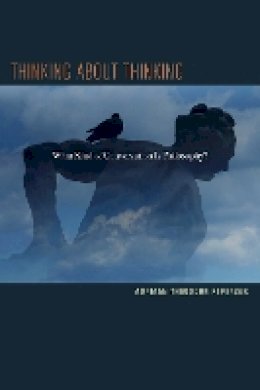
Thinking about Thinking: What Kind of Conversation Is Philosophy?
Adriaan T. Peperzak
Thinking about Thinking examines philosophy from a variety of perspectives as a practice realized by persons who communicate with one another while reflecting about the meaning of human life and thought.
Without forgetting the logical and methodological conditions of systematic thought, the author insists on the intimate connections that tie all philosophical texts and conversations to the lives from which they emerge. As product of an individual thinker, who, thanks to individual teachers, has been familiarized with particular traditions of a particular culture, each philosophy is unique. If it is a good one, it is also revealing for many—perhaps even for all—other philosophers. At the same time, all thinking is addressed to individual interlocutors, each of whom responds to it by transforming it into a different philosophy. This fact invites us to explore the dialogical dimension of thinking, which, in turn, refers us to the communitarian and historical contexts from which solitude, as well as solidarity, competition, alliances, and friendships in thought, emerge.
Product Details
About Adriaan T. Peperzak
Reviews for Thinking about Thinking: What Kind of Conversation Is Philosophy?
-—Peter Casarella, DePaul University "Thinking about Thinking comprises a set of meditations about the dialogical nature of philosophy and the philosophical life. The fruit of twenty-five years of teaching by a gifted and spirit-filled philosopher, these ten meditations gather around the themes of trust and faith in its several forms, including religious faith and Hegel’s “faith in reason.” As dialogical, philosophizing entails the receiver who is also a responder. Its focus is on the dative case, each participant bringing along the “tradition” that has helped fashion the person he or she is. In effect, it requires the risk that the honest conversation entered into by trusting interlocutors will leave neither party unchanged by the experience. Reading this thoughtful account is itself transformative. It is reminiscent of Foucault’s famous “parrhesiastic contract.”
-—Thomas R. Flynn, Emory University
